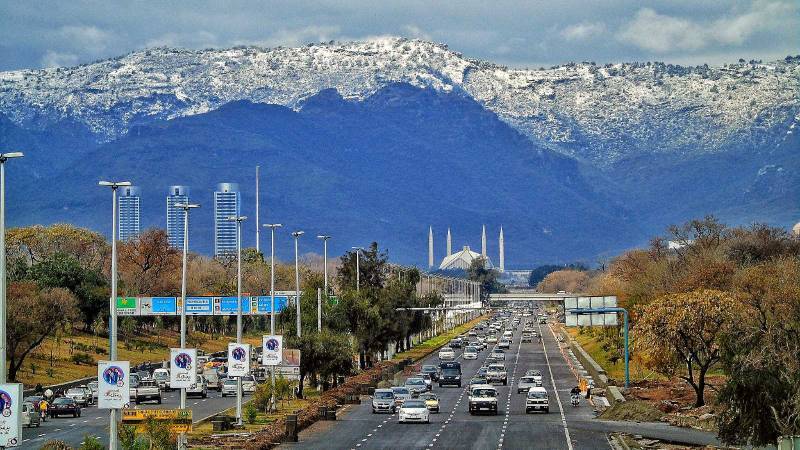
What does one say about the situation in Pakistan’s capital? From the trenches, it is a battle on multiple fronts between the government and its challengers—a game of who will blink first.
Since 8 February 2024, when undemocratic forces formally seized control of parliament, the crisis has only deepened. Now, a year later, on 10 February 2025, lawyers from across the country are protesting in central Islamabad against Chief Justice Yahya Afridi’s peculiar—some might say controversial—decision to appoint eight additional justices. His justification? The need to ‘balance out’ independent-minded judges. Instead of addressing blatant legitimacy issues and the widening trust deficit between citizens and state managers, the Chief Justice appears intent on reshaping the judiciary to his liking.
Letters from the superior bench to the Chief Justice have been ignored. In Pakistan, ignoring the people is nothing new, but disregarding one’s own colleagues is quite another matter. What are these ‘irritating’ justices demanding? Simply that the Chief Justice reconsider court-packing and, at the very least, adjudicate the pending pleas challenging the 26th Amendment before appointing new justices. They call for a comprehensive public discussion on the matter and demand legal legitimacy for the authority that enables such appointments.
Why is the Chief Justice refusing to listen to his colleagues? Perhaps because the 26th Amendment is even more contentious than the appointments themselves—an Act of Parliament that not only altered judicial structures but also secured his own ascension, superseding two senior justices. The amendment has been challenged by all provinces and multiple civil society actors, yet it remains unheard. The silence surrounding these pleas is deafening.
If this weren’t enough, the Chief Justice, in his wisdom, has deemed it prudent to appoint relatives and close associates of politically powerful and highly dubious figures as judges in Lahore, Islamabad, and even the Supreme Court.
This generational decay in governance and the moral complicity of state institutions have placed our national park—the lungs of the capital and home to hundreds of species—at risk
This is a clear and present danger to the very notion of justice and trust in those who wield the power to decide on life-and-death matters. If this does not undermine the integrity of the judiciary, then what does? As a citizen, I am flabbergasted at the audacity, the blatant impunity, and the sheer absence of wisdom behind these institutionally corrosive moves. Why commit judicial hara-kiri?
As protests erupt across Islamabad and roads are once again blocked—now a frequent occurrence—the government has made another particularly heinous move. Over the weekend, it denotified the Islamabad Wildlife Management Board (IWMB), effectively removing its chairperson, Rina Saeed.
Why? As the saying goes, those with dark intentions operate in darkness. In an unusual and telling move, the bureaucrats—who work a third of the day and are perpetually on holiday—chose a late Saturday night to quietly remove the IWMB board. Their real target? Rina Saeed.
What makes her so dangerous? Why the panic? Simply put, she championed environmental conservation and led Sunday plantation drives with children and citizens. This, it seems, had to be stopped. Why? Because in today’s Pakistan, plants and green development are a threat to those who profit from destruction.
As the judiciary battles for its very soul, emboldened mafias—land grabbers, commercial opportunists, and intermediaries—are seizing the moment. In an environment where ‘rule of law’ is whatever those in power declare it to be, the country’s economic and political elite have set their sights on the Margalla Hills, Islamabad’s most precious public good.
This generational decay in governance and the moral complicity of state institutions have placed our national park—the lungs of the capital and home to hundreds of species—at risk. The hills, vital for climate resilience and the well-being of 2.4 million residents, are now seen as yet another asset to be sold to the highest bidder.
We have seen this before. The 1980s saw the commercialisation of Rawal Lake. Then came Shakarparian and later Bani Gala, once protected areas, now lost to unchecked development. With no consequences for past transgressions, the state’s appetite for destruction has only grown bolder.
When will it be enough?
Islamabad is already experiencing the catastrophic effects of climate change—dangerously high air pollution, overpopulation, failing waste management, contaminated water, and intensifying heat waves. Yet, amid these red flags, the administration has decided that destroying a national park is the solution.
Some of us, as residents of Islamabad, recognise the gravity of this crisis and have appealed to the government and self-proclaimed environmental champions to intervene. But all remain silent. Why? Because those who depend on government largesse for their conference invitations—both local and international—are content with ‘greenwashing’ but unwilling to take meaningful action.
This is the hallmark of today’s Pakistan.
Those who should lead do not, and those who try face insurmountable odds. This is no recipe for hope.
At a press club conference addressing the ad hoc removal of the IWMB board, someone asked a particularly telling question: Are you from a political party? This question reveals the tragic state of discourse in Pakistan today. The inability to grasp that clean air, environmental protection, and the right to life are everyone’s politics is a direct consequence of our national curriculum and the unthinking minds it has produced. The system does not want citizens; it wants sheep.
For how long will we watch the destruction of everything that is precious? The right to clean air, the right to life—these are not distant concerns. They are here. They are now.

